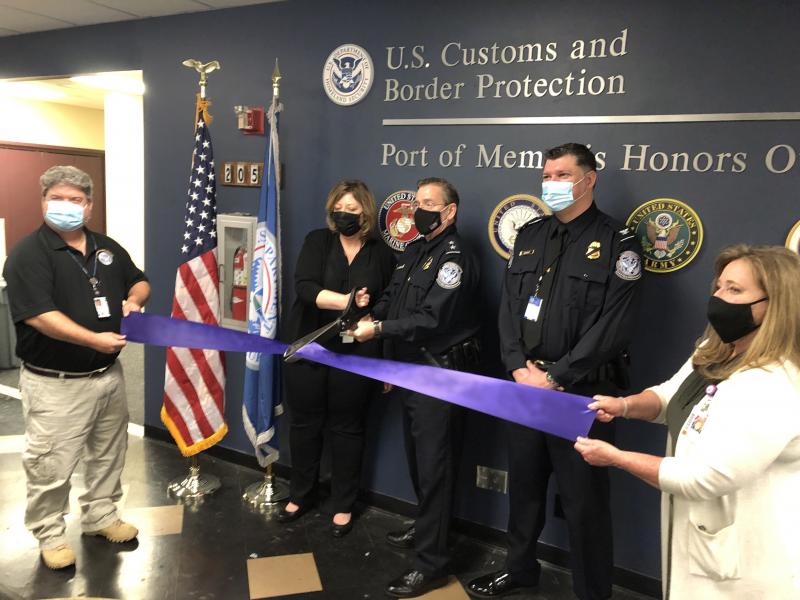An unknown substance is found in a shipment at an express consignment facility in Memphis, Tennessee. The U.S. Customs and Border Protection (CBP) Officer brings it to a chemist with our office of Laboratories and Scientific Services (LSS). For a 100%, legally confirmed identification of the substance that could stand in a court of law, it would have to be sent to a lab in Savannah, Georgia, and could take weeks. Now, it never leaves the building and can take four seconds.
CBP just opened a Forward Operating Laboratory (FOL) in Memphis that brings responsive and timely scientific support to our mission. FOLs are co-located at strategically chosen ports of entry to achieve an operator-focused, field-forward posture. The FOL operates under the concept of integration and side-by-side coordination with law enforcement personnel.
“Partnerships like these are essential for CBP to stay on the cutting edge of interdicting contraband safely and efficiently,” said Memphis Area Port Director Michael Neipert.
They are now able to expedite enforcement actions and generate information capitalizing on the agency’s collective expertise to address current and emerging threats. Previously, if that unknown substance had turned out to be contraband narcotics, the shipper would know that due to the length of time their shipment was missing, it had probably been seized. They would be wary of an investigation and would have the opportunity to change up their smuggling tactics.
The Opioid Crisis in 2017 was the driver for the creation of the first two LSS FOLs located at the John F. Kennedy International Mail Facility and the express consignment facility in Memphis. These FOLs are specifically designed to provide presumptive chemical screening analysis of suspect materials, particularly suspected controlled substances, intercepted through the inspection of international mail.
The integration of laboratory personnel with CBP operators and intelligence analysts provides several benefits to generating timely information: corroboration of collected information / intelligence, immediate identification of suspected controlled substances, or quick-turnarounds on a subject’s identity. Field-forwarded scientific support may lead to swifter prosecutions, closure of intelligence gaps, seizures of illicit substances, and arrests of suspects. Ultimately, this level of collaboration contributes to efficient use of individual parts to better serve justice to individuals and groups that threaten the security of the United States.
Front line needs are constantly evolving, and the lab must continuously adapt by rapidly developing or deploying new capabilities and resources. Strategic alignment allows for redirecting these resources to critical Agency operational requirements to meet the dynamic law enforcement environment.
The Area Port of Memphis, covering ports of entry throughout the state of Tennessee, is assigned to CBP’s New Orleans Field Office, which includes ports in Louisiana, Mississippi, Alabama, Arkansas and Tennessee.
Follow CBP on Twitter @CBPGulfCoast and @DFONewOrleans


